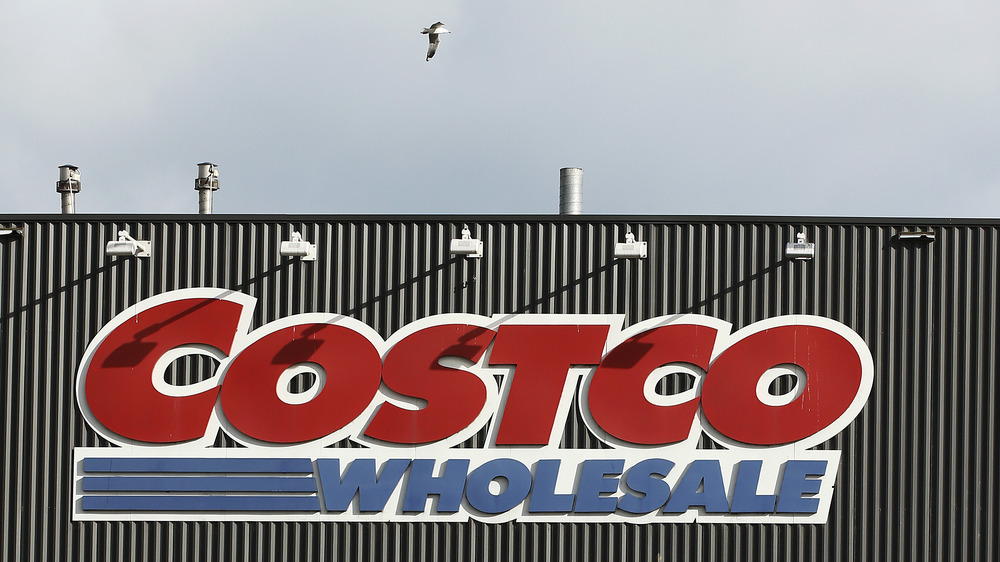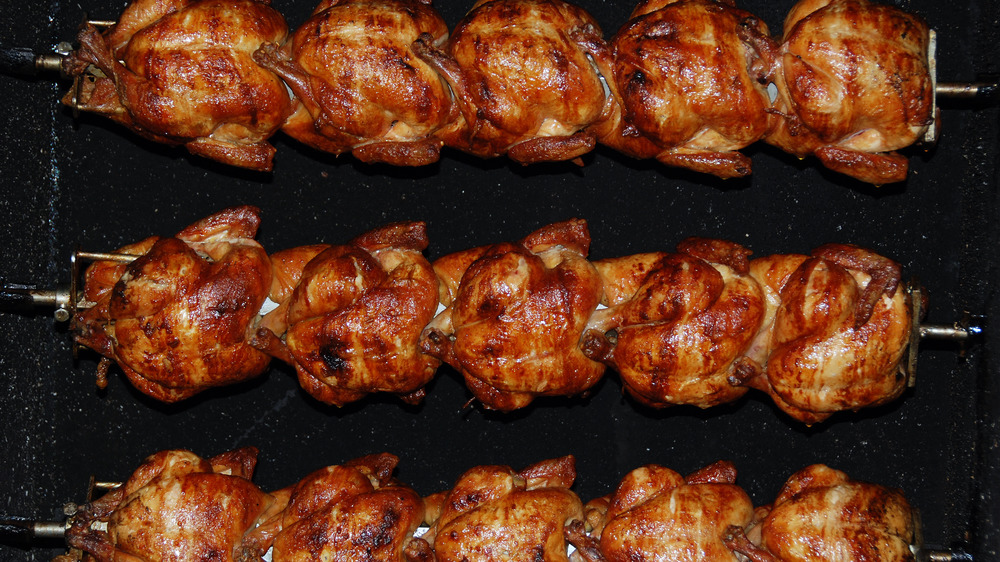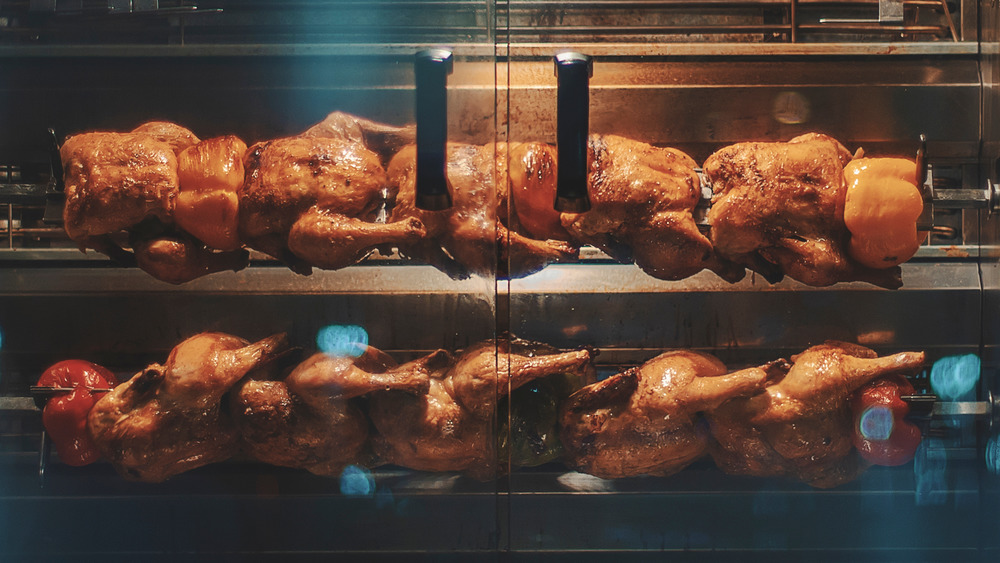Why You Should Never Buy Poultry At Costco
Don't buy your poultry from Costco. That is the first item Money lists as absolutely not worth the price, as their frozen chicken breast there sold for $1.99 a pound in 2019 while local grocer had $1.29 per pound sales. However, when people think of Costco poultry, they are more likely to imagine Costco's rotisserie chickens. According to The Hustle, at least 625 million rotisserie chickens were sold across the United States in 2017 alone. That is almost two chickens per person. The chicken is so popular that over 18,000 people follow the product on Facebook. Priced at $4.99, these poultry delights serve Costco as a loss leader – that is a product on which they would inevitably lose money but would recoup their losses by the money spent on other products in the store.
CNN reports how in the face of other companies raising the price to $5.99, Costco doggedly kept the price the same. Other issues that plague this item are the fact that the amount of whole chickens sold has decreased from 50 percent to 15 percent as more and more people are eating smaller, specific chicken cuts. The few chicken bodies remaining are also growing heavier, increasing from the six pounds Costco needs for their rotisserie line to seven or eight pounds. To maintain their dominant grasp on loss leader chicken, Costco decided to invest in a $450 million facility in Nebraska to streamline production. Anything to keep them at $4.99. But are those chickens worth buying?
Pulling apart the poultry
The answer to the question of whether the $4.99 rotisserie chicken is worth it for the customer, as you might imagine, falls under the "it depends" category. Different people have differing views about the value of the Costco rotisserie chicken. In a piece for My Money Blog, Jonathan Ping answers with a shrug: "I'm not going to proclaim a winner here." He acknowledges that while buying your own chicken and throwing it into the oven may be slightly cheaper and have fewer substances added to it, it still takes an hour to cook. Even though he accepts the convenience argument, he ends by saying that everyone should roast their own chicken at least once, and if they do, they may never want Costco rotisserie chicken again.
Darcy Lenz of My Recipes refuses this compromise. Straightway, Lenz acknowledges that Costco is cheap and convenient, but in fist-thumping fashion points out that roasting a chicken is neither expensive nor difficult, yields crispier skin, and results in moister meat because it is not being dried out under a heat lamp for hours. And it's deliciously easy to do. Just dry down your chicken before roasting to lessen the amount of steam stopping your skin from crisping. As Lenz puts it, "Compared to a chicken you effortlessly roasted at home, the Costco chicken is going to seem sorta shriveled and lifeless." There's nothing wrong per se with Costco's chickens, but you could cook a better one with ease and that sounds worth the wait.
Would you want to eat a Costco rotisserie chicken?
Alright. You have decided that you do not have the time to shove a chicken in the oven, opting instead to shove Costco's rotisserie deliciousness into your mouth. Before you bite in, you figure you should know whether the chicken's nutritional contents will kill make you regret your decision. For the most part, the chicken is fine. According to My Food Diary, 3 ounces of Costco's chicken will give you 19 grams of protein for only 140 calories and 2.5 grams of saturated fat.
However, due to the saline solution in which Costco douses the chicken, a single serving also includes 460 milligrams of sodium. This is almost a third of the 1500 milligrams of sodium recommended by the American Heart Association as a daily maximum. MedlinePlus, an information service provided by the United States National Library of Medicine, however, recommends a more lenient 2,300 milligrams a day. Still, even with the 800 additional milligrams, a single, unadorned Costco Rotisserie chicken would take up 20 percent of your sodium intake. This is worrisome because society is so addicted to sodium, it has crept into almost everything.
As SFGate describes, when you consume too much sodium, the potassium in your body seizes as much water as it can, increasing the amount of blood running through your veins. This is another way of saying it induces high blood pressure while also raising the risk of a heart attack, stroke, and heart disease. All for $4.99.


